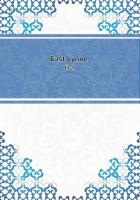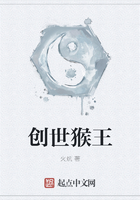The males considerably outnumber the females. This holds true of many of the islands of Polynesia, although the reverse of what is the case in most civilized countries. The girls are first wooed and won, at a very tender age, by some stripling in the household in which they reside. This, however, is a mere frolic of the affections, and no formal engagement is contracted. By the time this first love has a little subsided, a second suitor presents himself, of graver years, and carries both boy and girl away to his own habitation. This disinterested and generous-hearted fellow now weds the young couple-marrying damsel and lover at the same time- and all three thenceforth live together as harmoniously as so many turtles. I have heard of some men who in civilized countries rashly marry large families with their wives, but had no idea that there was any place where people married supplementary husbands with them. Infidelity on either side is very rare. No man has more than one wife, and no wife of mature years has less than two husbands,- sometimes she has three, but such instances are not frequent. The marriage tie, whatever it may be, does not appear to be indissoluble; for separations occasionally happen. These, however, when they do take place, produce no unhappiness, and are preceded by no bickerings: for the ****** reason, that an ill-used wife or a hen-pecked husband is not obliged to file a bill in chancery to obtain a divorce. As nothing stands in the way of a separation, the matrimonial yoke sits easily and lightly, and a Typee wife lives on very pleasant and sociable terms with her husbands. On the whole, wedlock, as known among these Typees, seems to be of a more distinct and enduring nature than is usually the case with barbarous people.
But, notwithstanding its existence among them, the scriptural injunction to increase and multiply seems to be but indifferently attended to. I never saw any of those large families, in arithmetical or step-ladder progression, which one often meets with at home. I never knew of more than two youngsters living together in the same home, and but seldom even that number. As for the women, it was very plain that the anxieties of the nursery but seldom disturbed the serenity of their souls; and they were never seen going about the valley with half a score of little ones tagging at their apron-strings, or rather at the bread-fruit leaf they usually wore in the rear.
I have before had occasion to remark that I never saw any of the ordinary signs of a place of sepulture in the valley, a circumstance which I attributed, at the time, to my living in a particular part of it, and being forbidden to extend my ramble to any considerable distance towards the sea. I have since thought it probable, however, that the Typees, either desirous of removing from their sight the evidences of mortality, or prompted by a taste for rural beauty, may have some charming cemetery situated in the shadowy recesses along the base of the mountains. At Nukuheva, two or three large quadrangular "pi-pis," heavily flagged, enclosed with regular stone walls, and shaded over and almost hidden from view by the interlacing branches of enormous trees, were pointed out to me as burial-places. The bodies, I understood, were deposited in rude vaults beneath the flagging, and were suffered to remain there without being disinterred. Although nothing could be more strange and gloomy than the aspect of these places, where the lofty trees threw their dark shadows over rude blocks of stone, a stranger looking at them would have discerned none of the ordinary evidences of a place of sepulture.
During my stay in the valley, as none of its inmates were so accommodating as to die and be buried in order to gratify my curiosity with regard to their funeral rites, I was reluctantly obliged to remain in ignorance of them. As I have reason to believe, however, that the observances of the Typees in these matters are the same with those of all the other tribes on the island, I will here relate a scene I chanced to witness at Nukuheva.
A young man had died, about daybreak, in a house near the beach. I had been sent ashore that morning, and saw a good deal of the preparations they were ****** for his obsequies. The body, neatly wrapped in new white tappa, was laid out in an open shed of cocoa-nut boughs, upon a bier constructed of elastic bamboos ingeniously twisted together. This was supported, about two feet from the ground, by large canes planted uprightly in the earth. Two females, of a dejected appearance, watched by its side, plaintively chanting, and beating the air with large grass fans whitened with pipe-clay. In the dwelling-house adjoining a numerous company were assembled, and various articles of food were being prepared for consumption. Two or three individuals, distinguished by head-dresses of beautiful tappa, and wearing a great number of ornaments, appeared to officiate as masters of the ceremonies. By noon the entertainment had fairly begun, and we were told that it would last during the whole of the two following days. With the exception of those who mourned by the corpse, every one seemed disposed to drown the sense of the late bereavement in convivial indulgence. The girls, decked out in their savage finery, danced; the old men chanted; the warriors smoked and chatted; and the young and lusty, of both ***es, feasted plentifully, and seemed to enjoy themselves as pleasantly as they could have done had it been a wedding.
The islanders understand the art of embalming, and practise it with such success, that the bodies of their great chiefs are frequently preserved for many years in the very houses where they died. I saw three of these in my visit to the bay of Tior. One was enveloped in immense folds of tappa, with only the face exposed, and hung erect against the side of the dwelling. The others were stretched out upon biers of bamboo, in open, elevated temples, which seemed consecrated to their memory. The heads of enemies killed in battle are invariably preserved, and hung up as trophies in the house of the conqueror. I am not acquainted with the process which is in use, but believe that fumigation is the principal agency employed. All the remains which I saw presented the appearance of a ham after being suspended for some time in a smoky chimney.
But to return from the dead to the living. The late festival had drawn together, as I had every reason to believe, the whole population of the vale, and consequently I was enabled to make some estimate with regard to its numbers. I should imagine that there were about two thousand inhabitants in Typee; and no number could have been better adapted to the extent of the valley. The valley is some nine miles in length, and may average one in breadth, the houses being distributed at wide intervals throughout its whole extent, principally, however, towards the head of the vale. There are no villages. The houses stand here and there in the shadow of the groves, or are scattered along the banks of the winding stream; their golden-hued bamboo sides and gleaming white thatch, forming a beautiful contrast to the perpetual verdure in which they are embowered. There are no roads of any kind in the valley. Nothing but a labyrinth of foot-paths, twisting and turning among the thickets without end.















